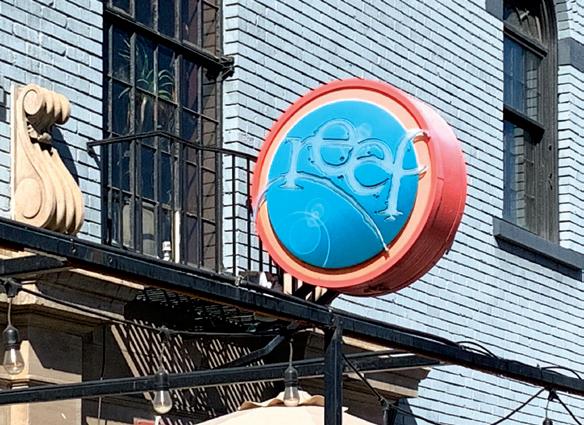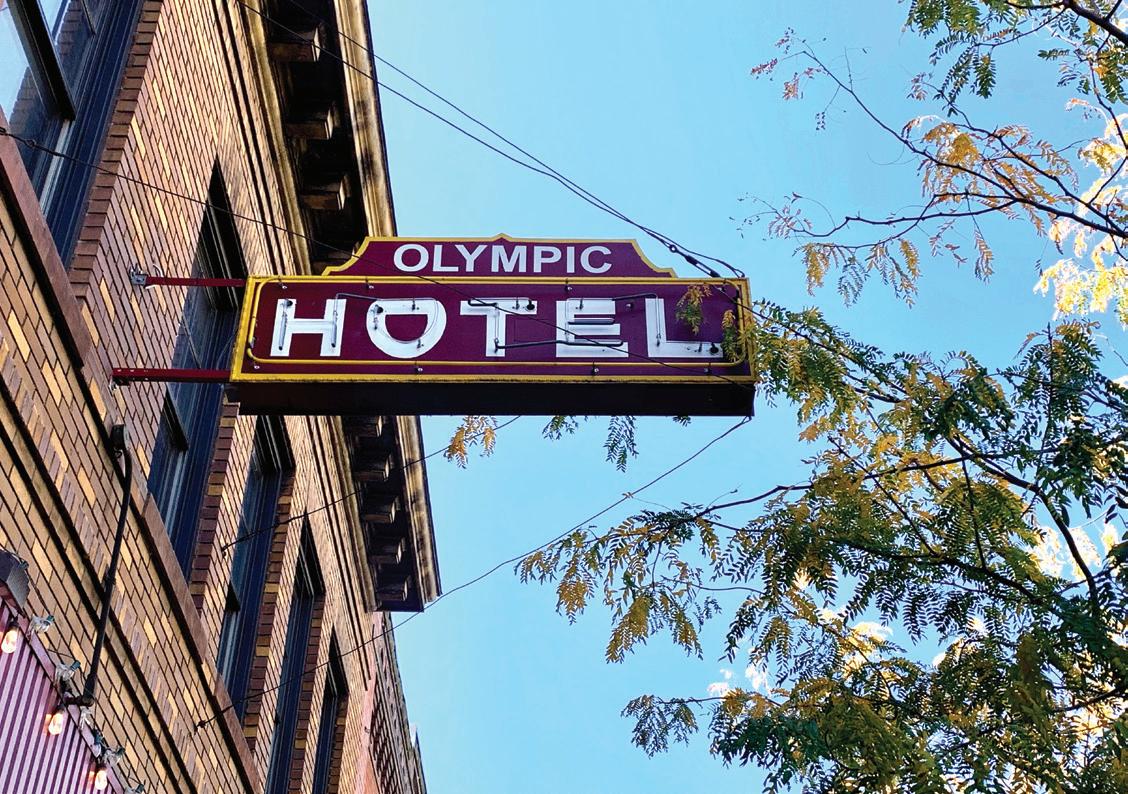
4 minute read
Saving Boise’s Stages
S A V I N G BOISE’S STAGES
BY SONORA BIRNIE
Advertisement
The silence that fills Boise’s eerily empty music venues is deafening and something no one expected to last as long as it has, least of all musician Melanie Radford. She has spent the better part of the past 10 years on Boise stages as a bassist and vocalist for several bands, including Built to Spill and Blood Lemon.
“I was brought up on these stages. I cut my teeth on these stages. I learned how to write songs and perform them on the Neurolux stage, the Crazy Horse stage, the Red Room stage and the Olympic,” Radford said. “These are incredibly important stages, not only to me as a musician, but for our entire community. It’s a hub for the music community and it’s a beacon to all professional musicians.”
While the CARES Act gave some small companies a small financial boost back in March, this was hardly to support the multi-faceted ecosystem that is independent music venues. The success of the stage relies on many players, only some of which include booking agents, musicians, bar tenders, and the sound and light engineers. The COVID-19 pandemic has rocked Boise’s music venues to the core, leaving owners, employees, and live-music lovers wondering if they can make it to the end of the year.
Several venues have already permanently closed in the Treasure Valley due to the sudden loss of revenue. In an effort to avoid the same fate as their fallen comrades, music venues across the nation have banded together to create the National Independent Venue Association (NIVA). The association was formed in March 2020, and
IDAHO PRESS ARCHIVES
TRACY BRINGHURST

(Top) Karen Meat performs at Neurolux in Boise during Treefort 2019 (Above) Reef is one venue currently offering live music on its outdoor patio.
TRACY BRINGHURST

The Olympic has joined with other music venues to create and promote legislation and financial resources.
it works “to preserve and nurture the ecosystem of independent live music venues and promoters throughout the United States,” according to its website. NIVA has also created an emergency relief fund in an effort to help support independent venues monetarily.
Despite having been created only months ago, NIVA has 2,000 charter members in all 50 states. Members push for federal assistance by urging the government to pass H.R. 7806, the Save Our Stages Act, H.R. 7481, and the RESTART Act. Eric Gilbert, a booking agent and music promoter for several of Boise’s favorite local stages including the beloved Olympic and Treefort Music Fest, knows all too well how desperate independent venues are for government aid.
“If you only have 50 people at the Olympic, you’re not really paying the overhead,” Gilbert, who is a part of NIVA, said. “The message we have been trying to get out there is that we (the live music industry) were the first ones to shut down and we will be one of the last ones to reopen, so we really need that financial support.”
Brookings Institute recently reported that the creative industry has suffered “losses of 2.7 million jobs and more than $150 billion in sales of goods and services for creative industries nationwide” from April to July of this year.
In an effort to remain part of Boise’s own creative industry, several venue bars have opened their doors once again on Sept. 10 for drinks, though their stages remain empty and their capacity smaller than ever before. Victoria De Lafey, who has been a bartender for Neurolux for the past two years, says that the bar’s regular patrons have been extra generous with their support in the past few weeks since the reopening.
“Our capacity is at 50%, but it is so good to see people out and about,” De Lafey said. “We are predominantly a venue so it’s been tough without our performers. The estimate is that without concerts our revenue will be less than a quarter of what it was before. Our regulars are the best, though, because the tips have been great, some even 50 or 60%. They know how much it means.”
The Reef is another spot familiar to lovers of Boise’s live music scene. The bar is lucky enough to have access to a second story outdoor patio, where they have been able to host live music. Brandon White works behind the Reef’s bar, and says that he has noticed how many are starved for the experience that live music brings to the community.
“We are at half the capacity we would have had before, which is hard. There used to be six more tables here right where I am standing,” said White, gesturing around to the widely spaced tables surrounding him. “When people come to drink and listen to music, they stay for hours, much longer than they did before. It’s hard to have the space for more people to come in when we only have a certain capacity and everyone stays for so long, but the local community always treats us so well.”
While it couldn’t be more true that music venues are struggling to keep afloat, there are things that can be done to save venues. People hoping to make a difference in their community can send letters and emails to legislators calling on them to pass the Save Our Stages act through NIVA’S portal. “(The legislation) seems like it’s definitely getting an audience,” Gilbert said. “It was a bipartisan bill introduced by Senators Cornyn and Klobuchar from Minnesota. What is cool about NIVA is that it is centered around independent venues, not anything that is part of a larger conglomerate, and the Olympic is very much a part of that. We really need the support of our government right now, that’s the most tangible change we can make.”










